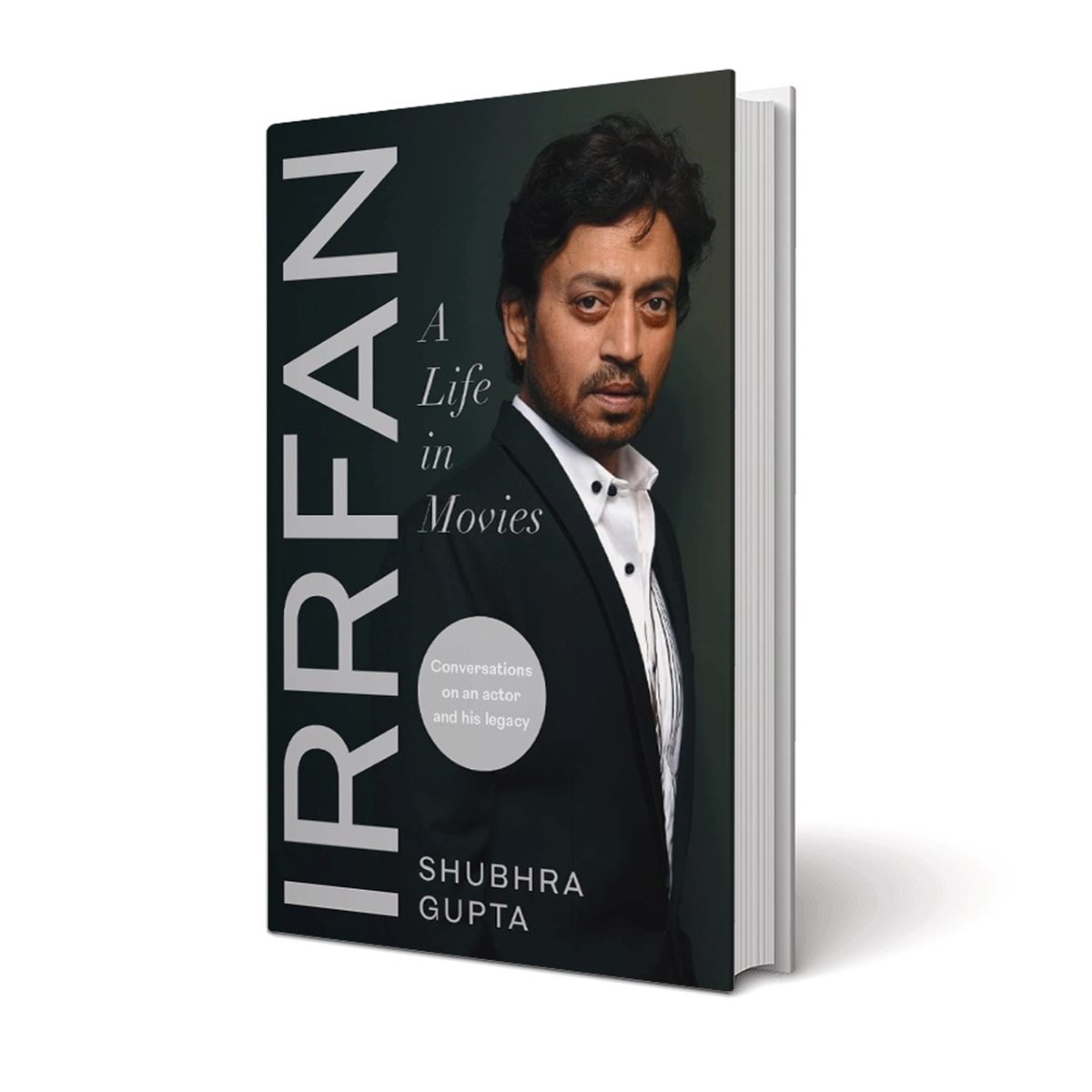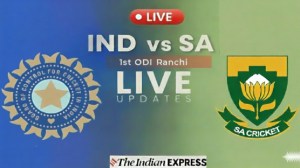‘Even when the material was terrible, he (Irrfan) was the best thing in that film’
Director Homi Adajania on Irrfan the man and the performer
 During the shoot of Angrezi Medium: (sitting) Deepak Dobriyal and Dimple Kapadia; (standing, from left to right) Irrfan, Homi Adajania and Kareena Kapoor
During the shoot of Angrezi Medium: (sitting) Deepak Dobriyal and Dimple Kapadia; (standing, from left to right) Irrfan, Homi Adajania and Kareena Kapoor
Homi Adajania: Okay, let’s talk about Irrfan the performer. I think he had a gift which is inexplicable. I remember asking him once, ‘Why are you so shit when you do ads? You’re just rubbish at them.’ He said, ‘Homi, it’s because I don’t believe who this character is.’ Even when it came to films, he would say, ‘It’ll take me a day or two to catch the soul of the character but once I’ve caught it, there is no way I can give you a false beat, because then I know exactly what the character will not do.’ I think that’s what also made him so unpredictable, because he didn’t have a pattern to it. There wasn’t a system to it, or a method. It was something that just flowed within him once he caught that character. When we were working on Angrezi Medium, he had not worked for about a year and we had a very unfiltered relationship that was extremely honest … one second … very difficult … *pauses, overwhelmed* He loved the fact that I had absolutely no reservations in talking to him the way I did; he was surrounded by people who would not do that with him. And he was always searching for a truth … it’s too difficult …
SHUBHRA GUPTA: Please, take a minute.
HA: No, no, I’m comfortable, I’m just …
SG: I had the same experience with Vishal [Bhardwaj] a few days back. He said he could not do this, because his relationship with Irrfan was not just that of director and performer, but something much closer. I think he was still finding it very difficult to speak about him in this objective fashion. I’m not really after anything other than truth myself. Irrfan mined the truth. Even when the material was terrible, he was the best thing in that film. And you had no idea what he was going to do on screen.
HA: Absolutely. You didn’t know what he was going to do when he came on set, when that camera switched on. So he hadn’t worked for a year and he came to me, and I told him … You don’t mind if I use profanity, right? I remember the whole crew was waiting and waiting for Irrfan Khan to walk back on the set. I took him aside and said, ‘You ******, I hope you haven’t forgotten how to act.’ He laughed and said, ‘Maybe I have; I never knew, really, what I used to do.’ So I said, ‘Maybe you’ll know when the camera comes on.’ I remember on the first day, before the first shot, I just told him, ‘Listen, you’re too organic. I mean, I can’t predict what you’re going to do.’ If I tell a guy that he has to walk through the door, Irrfan Khan may not; he won’t just walk through the door. I said, ‘Irrfan, I can’t shoot a ******* movie like this; you come and you block the scene. I can’t use my camera and light the whole thing only to have you turn your back on the scene like that.’ ‘Arre yaar, you’re embarrassing me, yaar,’ he would say.
But he was much more than an actor for me. We used to both look at life in a very unserious way, and not understand people who took it too seriously. We were always in pursuit of a laugh and, in that pursuit, there were many tears. He was extremely different towards the end, in a very beautiful way. Because … one second. Oof, this is too tiring, yaar. This is more tiring than my shoots, Shubhra …
 Irrfan: A Life in Movies, Shubhra Gupta, Pan Macmillan, 384 pages, Rs 899.
Irrfan: A Life in Movies, Shubhra Gupta, Pan Macmillan, 384 pages, Rs 899.
SG: Do you want a break?
HA: No, no, I’m okay. He once said, ‘If I had to go through this whole experience again, I wouldn’t change a thing. I am very selfish towards everyone around me, but this realisation I would not have got in ten lifetimes. I was so deluded by the fact that I was Irrfan Khan, the crossover star, the famous actor, the celebrity. I was blinded by the fact that I was Irrfan the label, and we are so not; we just create all these labels and it’s just not what your existence is and what your truth is.’ By the end of it, he didn’t want the attention; he didn’t want any sort of adulation. But there was one thing he couldn’t let go of. He told me, ‘Homi, mujhe mere craft se bahut mohabbat hai.’ [I have great love for my craft.] That was one thing he didn’t want to stop; he just loved to act. He was actually a very shy guy. He used to tell me, ‘Even when I go out in public, I am acting; that’s not me. I am playing a role.’ He came from a very conservative family, very traditional – extremely patriarchal father. He told me once how he had broken his arm and his father refused to let him put it in a cast. His whole arm had to be reset. He said, ‘I don’t understand it even today. I’ve realised that people are different and I don’t expect them to understand me.’ He said that he was extremely shy; after doing a small course, he had come to Bombay as an AC repairman. He told me, ‘I went to the first gig I got, which was to fix one AC and, as soon as I fixed it and left that flat, I thought there is no way I can do this for the rest of my life. That was the beginning and end of that career.’
Luckily the second career worked out well and lasted much longer. But he said, ‘Because of my shyness, I realised that an actor can inhabit a character and doesn’t have to live with the validation and the approval we seek in our real lives, or the way we want to be portrayed in our real lives. You can play a character that you don’t need to justify; you don’t care about the judgement. It allows you to be extremely free and extremely fearless. Being an introvert, for me, playing a character who can be anything without my having to explain that to my real self was a joyous discovery. That is what hooked me – I could be anyone.’
(Extracted with permission from Pan MacMillan)



- 01
- 02
- 03
- 04
- 05




























